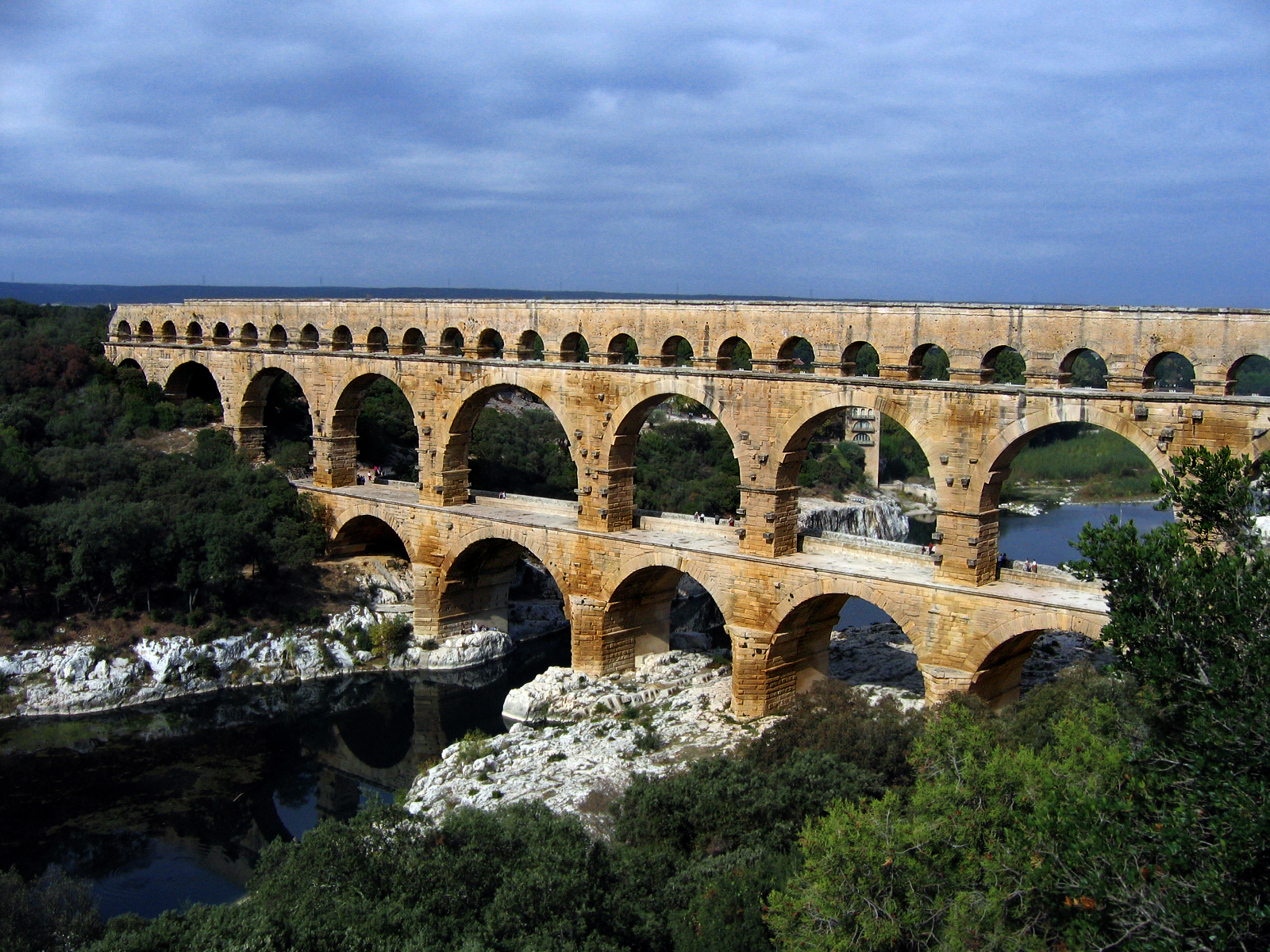
The Pont du Gard in France is a Roman aqueduct built in c. 19 BC.
Roman Technology
Wikipedia
A Curriculum for Cybernetics and Systems Theory
Alan B. Scrivenerabs@well.com
The blind spot in our civilization when it comes to wholeness and loops goes back a long way.
Plato said, in Georgics, that "Helmsmanship is unassuming and modest and does not boast and does not behave as if it had done something wonderful."
This contempt for piloting fits in with the general ancient Greek aversion to any linking truth-seeking with useful activity.
This meant the literate philosophers and the skilled workers were kept apart.
The Romans were by contrast ruthlessly practical, had literate engineers (who could write down their skills and plans).
They conquered the known world with their "practicality," which had toxic social, religious and ecological side effects. Christinanity swept the Roman empire partially as an antidote to the Roman toxic pragmatism.
The dark ages were, in Europe, a period of avoidance of practical applications of technology in favor of the search for religious grace.
Our civilization didn't deviate from this pattern until the 13th Century, when literate monks were forced to garden, and dragged out a bunch of Roman engineering books, rediscovering hydraulics and inventing the windmill.
Similar integrations of learning and labor helped bring about the Renaissance and the Industrial Revolution.
And yet today we call schools where more practical skills are taught "Junior Colleges," while all the really useless ideas are confined to "Universities."
Greek logic was made symbolic by nineteenth century academic George Boole, who -- like the Greeks -- prohibited loops in logic chains.
But in this century electronic engineers found that you can build logic gates physically, and you can hook them up in loops, resulting in both digital memories and digital oscillators.
These humble engineers were "off the map" of Western civilization's mathematics and philosophy.
One of the simplest of these circuits was a one-bit memory, which was named a "flip flop" -- indicating the lack of academic tradition for the whole idea.
Our traditions cling to the idea that explanations can be built of short causal chains: event A causes event B, which causes event C. Loops are prohibited because they are hard to analyze, introducing non-linear terms into the equations.
Therefore our current scientific method has become a form of pretend madness in which we deny that anything is connected to anything else unless we can prove that it is. We use this method because we can so much more easily start with assumed isolation and then prove the connectedness of the components of a system than do the opposite.
But our simplifying assumption has become an article of faith, and this false faith is aggravating the "externalities" of our society: pollution, crime, alienation, illiteracy, the decay of our infrastructure, the decline of our industry.
All of these problems have been amplified by the success of our technology in achieving narrowly defined goals.
Cybernetics and systems theory are part of the antidote to the toxic byproducts of our short-sighted reductionism.
A Curriculum for Cybernetics and Systems Theory
Alan B. Scrivener
No comments:
Post a Comment